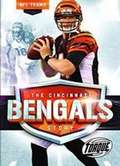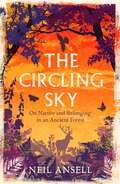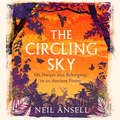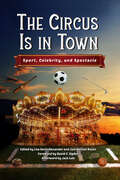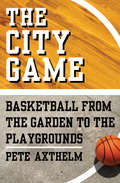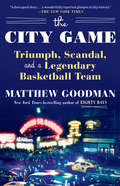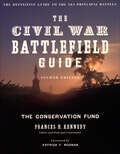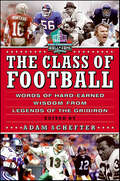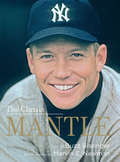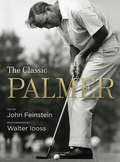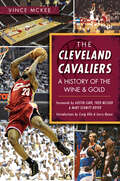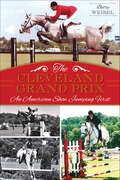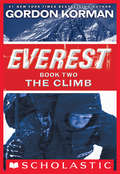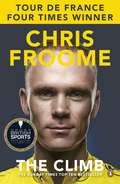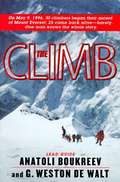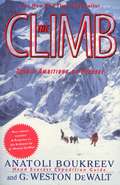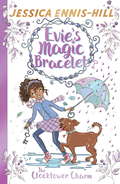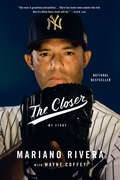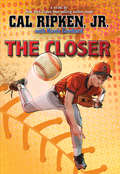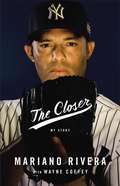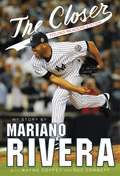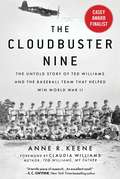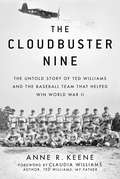- Table View
- List View
The Cincinnati Bengals Story (NFL Team)
by Allan MoreyFortunately the Bengals' uniforms have evolved. Today they wear bold, black stripes like Bengal tigers. Read about the Cincinnati Bengals' drive and evolution since 1968 in this title for young readers. This title includes: photo labels, scoring terms sidebar, and a team hometown map.
The Circling Sky: On Nature and Belonging in an Ancient Forest
by Neil AnsellFrom a 2018 Wainwright Prize shortlisted author, THE CIRCLING SKY is part childhood memoir, blended with exquisite nature observation, and the story of one man's journey over a year to one of the UK's key natural habitats, the New Forest of HampshireIn the form of several journeys, beginning in January 2019, Neil Ansell returns for solitary walks to the New Forest in Hampshire, close to where he was born. With beautiful sightings and observations of birds, trees, butterflies, insects and landscape, this is also a reflective memoir on childhood, on the history of one of the most ancient and important natural habitats in the United Kingdom, and on the Gypsies who lived there for centuries - and were subsequently expelled to neighbouring cities. It is also part polemic on our collective and individual responsibility for the land and world in which we live, and how we care for it.As Neil Ansell concludes so eloquently, 'Evolution has no choice in what it does, but we do, as a species, if not always as individuals'.
The Circling Sky: On Nature and Belonging in an Ancient Forest
by Neil AnsellFrom a 2018 Wainwright Prize shortlisted author, THE CIRCLING SKY is part childhood memoir, blended with exquisite nature observation, and the story of one man's journey over a year to one of the UK's key natural habitats, the New Forest of HampshireIn the form of several journeys, beginning in January 2019, Neil Ansell returns for solitary walks to the New Forest in Hampshire, close to where he was born. With beautiful sightings and observations of birds, trees, butterflies, insects and landscape, this is also a reflective memoir on childhood, on the history of one of the most ancient and important natural habitats in the United Kingdom, and on the Gypsies who lived there for centuries - and were subsequently expelled to neighbouring cities. It is also part polemic on our collective and individual responsibility for the land and world in which we live, and how we care for it.As Neil Ansell concludes so eloquently, 'Evolution has no choice in what it does, but we do, as a species, if not always as individuals'.
The Circling Sky: On Nature and Belonging in an Ancient Forest
by Neil AnsellFrom a 2018 Wainwright Prize shortlisted author, THE CIRCLING SKY is part childhood memoir, blended with exquisite nature observation, and the story of one man's journey over a year to one of the UK's key natural habitats, the New Forest of HampshireIn the form of several journeys, beginning in January 2019, Neil Ansell returns for solitary walks to the New Forest in Hampshire, close to where he was born. With beautiful sightings and observations of birds, trees, butterflies, insects and landscape, this is also a reflective memoir on childhood, on the history of one of the most ancient and important natural habitats in the United Kingdom, and on the Gypsies who lived there for centuries - and were subsequently expelled to neighbouring cities. It is also part polemic on our collective and individual responsibility for the land and world in which we live, and how we care for it.As Neil Ansell concludes so eloquently, 'Evolution has no choice in what it does, but we do, as a species, if not always as individuals'.(P)2021 Headline Publishing Group Limited
The Circus Is in Town: Sport, Celebrity, and Spectacle
by Jack LuleContributions by Lisa Doris Alexander, Matthew H. Barton, Andrew C. Billings, Carlton Brick, Ted M. Butryn, Brian Carroll, Arthur T. Challis, Roxane Coche, Curtis M. Harris, Jay Johnson, Melvin Lewis, Jack Lule, Rory Magrath, Matthew A. Masucci, Andrew McIntosh, Jorge E. Moraga, Leigh M. Moscowitz, David C. Ogden, Joel Nathan Rosen, Kevin A. Stein, and Henry YuIn this fifth book on sport and the nature of reputation, editors Lisa Doris Alexander and Joel Nathan Rosen have tasked their contributors with examining reputation from the perspective of celebrity and spectacle, which in some cases can be better defined as scandal. The subjects chronicled in this volume have all proven themselves to exist somewhere on the spectacular spectrum—the spotlight seemed always to gravitate toward them. All have displayed phenomenal feats of athletic prowess and artistry, and all have faced a controversy or been thrust into a situation that grows from age-old notions of the spectacle. Some handled the hoopla like the champions they are, or were, while others struggled and even faded amid the hustle and flow of their runaway celebrity. While their individual narratives are engrossing, these stories collectively paint a portrait of sport and spectacle that offers context and clarity. Written by a range of scholarly contributors from multiple disciplines, The Circus Is in Town: Sport, Celebrity, and Spectacle contains careful analysis of such megastars as LeBron James, Tonya Harding, David Beckham, Shaquille O’Neal, Maria Sharapova, and Colin Kaepernick. This final volume of a project that has spanned the first three decades of the twenty-first century looks to sharpen questions regarding how it is that reputations of celebrity athletes are forged, maintained, transformed, repurposed, destroyed, and at times rehabilitated. The subjects in this collection have been driven by this notion of the spectacle in ways that offer interesting and entertaining inquiry into the arc of athletic reputations.
The City Game: Basketball from the Garden to the Playgrounds
by Pete Axthelm&“The master prose stylist portrays parallel basketball worlds in New York City: Madison Square Garden . . . and the playgrounds of Harlem&” (Sports Illustrated). The New York Knickerbockers, one of the NBA&’s charter franchises, played professionally for twenty-four years before winning their first championship in 1970, defeating the Los Angeles Lakers in a thrilling seven-game series. Those Knicks, who won again in 1973, became legends, and captivated a city that has basketball in its blood. But this book is more than a history of the championship Knicks. It is an exploration of what basketball means to New York—not just to the stars who compete nightly in the garden, but to the young men who spend their nights and weekends perfecting their skills on the concrete courts of the city&’s parks. Basketball is a city game, and New York is the king of cities.
The City Game: Triumph, Scandal, and a Legendary Basketball Team
by Matthew GoodmanThe powerful story of a college basketball team who carried an era&’s brightest hopes—racial harmony, social mobility, and the triumph of the underdog—but whose success was soon followed by a shocking downfall &“A masterpiece of American storytelling.&”—Gilbert King, Pulitzer Prize–winning author of Devil in the GroveThe unlikeliest of champions, the 1949–50 City College Beavers were extraordinary by every measure. New York&’s City College was a tuition-free, merit-based college in Harlem known far more for its intellectual achievements and political radicalism than its athletic prowess. Only two years after Jackie Robinson broke the Major League Baseball color barrier—and at a time when the National Basketball Association was still segregated—every single member of the Beavers was either Jewish or African American. But during that remarkable season, under the guidance of the legendary former player Nat Holman, this unheralded group of city kids would stun the basketball world by becoming the only team in history to win the NIT and NCAA tournaments in the same year. This team, though, proved to be extraordinary in another way: During the following season, all of the team&’s starting five were arrested by New York City detectives, charged with conspiring with gamblers to shave points. Almost overnight these beloved heroes turned into fallen idols. The story centers on two teammates and close friends, Eddie Roman and Floyd Layne, one white, one black, each caught up in the scandal, each searching for a path to personal redemption. Though banned from the NBA, Layne continued to devote himself to basketball, teaching the game to young people in his Bronx neighborhood and, ultimately, with Roman&’s help, finding another kind of triumph—one that no one could have anticipated. Drawing on interviews with the surviving members of that championship team, Matthew Goodman has created an indelible portrait of an era of smoke-filled arenas and Borscht Belt hotels, when college basketball was far more popular than the professional game. It was a time when gangsters controlled illegal sports betting, the police were on their payroll, and everyone, it seemed, was getting rich—except for the young men who actually played the games. Tautly paced and rich with period detail, The City Game tells a story both dramatic and poignant: of political corruption, duplicity in big-time college sports, and the deeper meaning of athletic success.
The Civil War Battlefield Guide: The Definitive Guide to the 384 Principal Battles
by Frances H. KennedyThis new edition of the definitive guide to Civil War battlefields is really a completely new book. While the first edition covered 60 major battlefields, from Fort Sumter to Appomattox, the second covers all of the 384 designated as the "principal battlefields" in the Civil War Sites Advisory Commission Report. As in the first edition, the essays are authoritative and concise, written by such leading historians as James M. McPherson, Stephen W. Sears, Edwin C. Bearss, James I. Robinson, Jr., and Gary W. Gallager. The second edition also features 83 new four-color maps covering the most important battles. The Civil War Battlefield Guide is an essential reference for anyone interested in the Civil War.
The Class of Football: Words of Hard-Earned Wisdom from Legends of the Gridiron
by Adam SchefterInsightful, poignant, inspiring, and witty, The Class of Football is a heartfelt collection of hard-earned wisdom and life's lessons from the Hall-of-Fame induction speeches of the NFL's all-time greatest players.Compiled in conjunction with the Pro Football Hall of Fame, The Class of Football brings together sage advice from legends of the game whose knowledge, leadership, experience, and athletic prowess made them heroes on and off the field. George Halas speaks on history, Alan Page on justice, Gale Sayers on perseverance, John Madden on passion, Steve Largent on mentors, Mike Singletary on childhood, Michael Irvin on family, Marv Levy on philosophy, and Willie Davis and the rest of the great Green Bay Packers on Vince Lombardi. Each Hall of Famer reflects on his life and career and, even more important, addresses how and why he was able to arrive, once and for all, in Canton, Ohio. Motivating and gripping, these wise words from nearly five decades of Hall-of-Fame history will live on long after the cheering.
The Classic Mantle
by Buzz BissingerFilled with stunning photos, this book by the #1 New York Times–bestselling sportswriter tells the story of Mickey Mantle’s legendary career.Mickey Mantle has long been considered one of baseball's most memorable figures—playing his entire eighteen-year baseball career for the New York Yankees (1951-68), winning three American League MVP titles, playing in twenty All-Star games, and winning seven World Series. Today, decades after his retirement, he still holds six World Series records, including most home runs (18). Buzz Bissinger, Pulitzer Prize winner and acclaimed author of Friday Night Lights and Three Nights in August, goes beyond the statistics to bring Mantle to life, and striking photographs by Marvin E. Newman make this book a fitting tribute to Mantle’s career and his lasting impact on the sport of baseball.
The Classic Palmer
by John FeinsteinA portrait of legendary golfer Arnold Palmer from a New York Times–bestselling sportswriter, with numerous photos included. Over a career spanning more than half a century, Arnold Palmer amassed an astounding record of ninety-two worldwide titles, four Masters championships, a US Open crown, and back-to-back British Open victories, truly earning his nickname &“the King&”—as well as a legion of loyal fans who came to be known as &“Arnie&’s Army.&” He exuded a charisma that America loved—and even had a drink named after him. In this chronicle of one of the greatest players ever to swing a club, renowned sportswriter John Feinstein provides a vivid biographical portrait of golf&’s most beloved icon. Accompanied by Walter Iooss&’s superb photographs, The Classic Palmer lets golf lovers travel with Palmer on his journey from amateur to pro, from pro to master, and from master to legend.
The Classic: ’69 Chevy Camaro (Turbocharged)
by Eric StevensEddie King dreams of drag racing. When Eddie's dad ditched the family, he left behind a '69 Chevy Camaro, and Eddie's determined to get the old beater back into racing shape. He even sets out to get his dad's help with the project. When Eddie's dad shows up with an expensive new carburetor, Eddie can't help but wonder where it came from. Is his dad involved in illegal activity? And will Eddie get drawn in—or rise above it and compete in the big race? Includes real tech specs and tuning details for the '69 Chevy Camaro!
The Cleveland Cavaliers: A History of the Wine & Gold (Sports Ser.)
by Vince McKeePhotos, interviews, behind-the-scenes stories, and in-depth analysis—the ultimate team history for Cavs fans! Take a courtside seat with sportswriter Vince McKee as he dishes out the history of the Cleveland Cavaliers from the founding of the franchise in 1970 to the triumphant return of LeBron James in 2014. Highlights include draft picks turned all-stars, such as James and Brad Daugherty; coaching changes; heated rivalries; player departures; and dubious distinctions like &“the Shot&” and &“the Stepien Rule.&” You&’ll also get insight and analysis of every epic run from legendary sportscaster Joe Tait; players Austin Carr, Craig Ehlo, and Larry Nance; and others as they reveal the untold true stories behind the major events in Cavs history.
The Cleveland Grand Prix: An American Show Jumping First (Sports)
by Betty WeibelHome to inventors of the first automobile, airplane and professional baseball team, Ohio is also the birthplace of the first horse show jumping grand prix in the Western Hemisphere. Longtime fans can relive the exciting victories of some of the finest horses and riders in history, while newcomers can experience the Cleveland Grand Prix's glory years as the premier summer social tradition for thousands of spectators. From harness racing to fox hunting, saddle up with equestrian authority Betty Weibel as she explains how this picturesque corner of the Chagrin Valley grew into a world-class horse sport hub.
The Climb (Everest #2)
by Gordon KormanA thrilling adventure trilogy from Gordon Korman that follows a group of young climbers to the top of Mt. Everest!The height of danger.Everest. The ultimate climb. The greatest of risks.Four kids are on a quest to reach the top-and none of them are among the four anyone expected to be there when Summit Athletic started the contest to bring the youngest team of climbers to the peak. Their ascent is not easy. The weather is harsh, and the competition is even harsher.Then the unexpected happens, and the climbing contest becomes a life-or-death rescue mission. With thinning air-and on thin ice-no one is guaranteed to survive.
The Climb: The Autobiography
by Chris FroomeOn 26th July 2015, Chris Froome entered the record books. He won cycling's ultimate race - the Tour de France - for the second time.Taking a double Yellow Jersey was a staggering achievement. This memoir shows just how remarkable it was, given the uphill struggle Froome faced. Growing up in Kenya, biking down mile after mile of dusty road, and staying in a humble tin hut, he developed a fierce passion and determination to win.The road to Europe was long, gruelling and filled with setbacks - but it prepared him for teamwork as a domestique and then the leap to leader of Team Sky and a shot at winning the Tour de France. In The Climb, written with the renowned investigative reporter David Walsh, he vividly recounts the struggles, the rivalries, the battles, the comebacks. Finally he traces his path to triumph and his mission to help clean up cycling.Inspiring and exhilarating, it will leave you ready to face your own challenges in life, whatever they may be.'Engaging, vividly evoked' Mail on Sunday, Books of the Year'What Chris has done is phenomenal' Sir Chris Hoy
The Climb: Tragic Ambitions on Everest
by Anatoli Boukreev G. Weston DewaltRob Hall and Scott Fischer both assemble teams of enthusiastic climbers who want to try their luck at climbing Mount Everest, the tallest mountain in the world (above sea level). This book is an account of what happened during the climb, as the climbers face both defeat and failure, drawing heavily on the viewpoint of Anatoli Boukreev, one of the guides employed by the Fischer expedition.
The Climb: Tragic Ambitions on Everest
by Anatoli Boukreev G. Weston DeWaltEverest, the major motion picture from Universal Pictures, is set for wide release on September 18, 2015. Read The Climb, Anatoli Boukreev (portrayed by Ingvar Sigurðsson in the film) and G. Weston DeWalt’s compelling account of those fateful events on Everest.In May 1996 three expeditions attempted to climb Mount Everest on the Southeast Ridge route pioneered by Sir Edmund Hillary and Tenzing Norgay in 1953. Crowded conditions slowed their progress. Late in the day twenty-three men and women-including expedition leaders Scott Fischer and Rob Hall-were caught in a ferocious blizzard. Disoriented and out of oxygen, climbers struggled to find their way down the mountain as darkness approached. Alone and climbing blind, Anatoli Boukreev brought climbers back from the edge of certain death. This new edition includes a transcript of the Mountain Madness expedition debriefing recorded five days after the tragedy, as well as G. Weston DeWalt's response to Into Thin Air author Jon Krakauer.
The Clocktower Charm: Book 5 (Evie's Magic Bracelet #5)
by Elen Caldecott Jessica Ennis-HillThe fifth in a magical, exciting series by Olympian and World Book Day ambassador Jessica Ennis-Hill. Perfect for fans of Rainbow Magic and My Little Pony! What if you had a special bracelet that allowed you to do magic, just by thinking about it? Evie's grandma has sent her another parcel. Inside layers of tissue and colourful ribbons is a beautiful bracelet! Evie's going to need the bracelet - and a brave heart - when she investigates a spooky old clocktower. But she's always ready to have some magical adventures!Evie shares Jessica's determination and drive - an inspiration for kids everywhere.The full list of titles: 1. The Silver Unicorn2. The Enchanted Puppy3. The Sprites' Den4. The Unicorn's Foal5. The Clocktower Charm6. The Fire Bird7. The Golden Sands
The Closer
by Wayne Coffey Mariano RiveraThe greatest relief pitcher of all time shares his extraordinary story of survival, love, and baseball.Mariano Rivera, the man who intimidated thousands of batters merely by opening a bullpen door, began his incredible journey as the son of a poor Panamanian fisherman. When first scouted by the Yankees, he didn't even own his own glove. He thought he might make a good mechanic. When discovered, he had never flown in an airplane, had never heard of Babe Ruth, spoke no English, and couldn't imagine Tampa, the city where he was headed to begin a career that would become one of baseball's most iconic. What he did know: that he loved his family and his then girlfriend, Clara, that he could trust in the Lord to guide him, and that he could throw a baseball exactly where he wanted to, every time.With astonishing candor, Rivera tells the story of the championships, the bosses (including The Boss), the rivalries, and the struggles of being a Latino baseball player in the United States and of maintaining Christian values in professional athletics. The thirteen-time All-Star discusses his drive to win; the secrets behind his legendary composure; the story of how he discovered his cut fastball; the untold, pitch-by-pitch account of the ninth inning of Game 7 in the 2001 World Series; and why the lowest moment of his career became one of his greatest blessings.In The Closer, Rivera takes readers into the Yankee clubhouse, where his teammates are his brothers. But he also takes us on that jog from the bullpen to the mound, where the game -- or the season -- rests squarely on his shoulders. We come to understand the laserlike focus that is his hallmark, and how his faith and his family kept his feet firmly on the pitching rubber. Many of the tools he used so consistently and gracefully came from what was inside him for a very long time -- his deep passion for life; his enduring commitment to Clara, whom he met in kindergarten; and his innate sense for getting out of a jam.When Rivera retired, the whole world watched -- and cheered. In The Closer, we come to an even greater appreciation of a legend built from the ground up.
The Closer (Cal Ripken Jr.'s All Stars #6)
by Cal Ripken Jr.The final book in the out-of-the-park series by legendary short-stop and a veteran sportswriter Cal Ripkin.Danny Connolly is a back-up pitcher with the Dulaney Orioles. He knows what that means: not good enough to start. When he does get into games, he hasn't exactly been the shut-down reliever the team needs. To make matters worse, he's playing in the shadow of his older brother, Joey, a lights-out high school lefty with a 90-mph fastball who's attracting lots of attention from college recruiters and major league scouts. It's bad enough that Danny's parents seem to fawn over Joey and barely talk about what Danny does in his games. But now, as his big brother's mound exploits draw more and more attention, Danny's starting to get the why-aren't-you-as-good-as-Joey comments from the Orioles, too. The pressure to live up to Joey's success is stifling.Lonely and frustrated, Danny embarks on a secret project designed to make his family and teammates sit up and take notice. Aided by a mysterious stranger with an uncanny knowledge of the aerodynamics of a thrown baseball, he attempts to learn a new pitch. A pitch no one has ever seen before. The clock is ticking on Danny as the O's try to repeat as league champions. But if his audacious plan works and he can master the magical fluttering pitch known as "The Terminator," he'll soon be the talk of the league -- and the dependable closer the Orioles desperately need.
The Closer: My Story
by Wayne Coffey Mariano RiveraThe greatest relief pitcher of all time shares his extraordinary story of survival, love, and baseball. <P> Mariano Rivera, the man who intimidated thousands of batters merely by opening a bullpen door, began his incredible journey as the son of a poor Panamanian fisherman. When first scouted by the Yankees, he didn't even own his own glove. He thought he might make a good mechanic. When discovered, he had never flown in an airplane, had never heard of Babe Ruth, spoke no English, and couldn't imagine Tampa, the city where he was headed to begin a career that would become one of baseball's most iconic. What he did know: that he loved his family and his then girlfriend, Clara, that he could trust in the Lord to guide him, and that he could throw a baseball exactly where he wanted to, every time. <P> With astonishing candor, Rivera tells the story of the championships, the bosses (including The Boss), the rivalries, and the struggles of being a Latino baseball player in the United States and of maintaining Christian values in professional athletics. The thirteen-time All-Star discusses his drive to win; the secrets behind his legendary composure; the story of how he discovered his cut fastball; the untold, pitch-by-pitch account of the ninth inning of Game 7 in the 2001 World Series; and why the lowest moment of his career became one of his greatest blessings. <P> In The Closer, Rivera takes readers into the Yankee clubhouse, where his teammates are his brothers. But he also takes us on that jog from the bullpen to the mound, where the game -- or the season -- rests squarely on his shoulders. We come to understand the laserlike focus that is his hallmark, and how his faith and his family kept his feet firmly on the pitching rubber. Many of the tools he used so consistently and gracefully came from what was inside him for a very long time -- his deep passion for life; his enduring commitment to Clara, whom he met in kindergarten; and his innate sense for getting out of a jam. When Rivera retired, the whole world watched -- and cheered. In The Closer, we come to an even greater appreciation of a legend built from the ground up.
The Closer: Young Readers Edition
by Wayne Coffey Sue Corbett Mariano RiveraMariano Rivera never dreamed of becoming a professional athlete. He didn't grow up collecting baseball cards, playing Little League, or cheering on his home team at the World Series. He had never heard of Babe Ruth, Lou Gehrig, Joe DiMaggio, or Mickey Mantle.One day, that all changed.From a childhood playing pickup games in Panama to an epic career with the New York Yankees, Mariano's rise to greatness has been anything but ordinary. He's the guy on the mound who doesn't hear the crowd, just the sound of the ump calling, Strike! The teammate you can rely on, even when the bases are loaded in the bottom of the ninth. Whether you know him as Mo or as the Sandman, Mariano is The Closer, and this is his story.Full of tips for young athletes and tales from the Yankee clubhouse, The Closer: Young Readers Edition is an inspiring story of perseverance, sportsmanship, and dedication that have defined the life of a baseball legend.
The Cloudbuster Nine: The Untold Story of Ted Williams and the Baseball Team That Helped Win World War II
by Claudia Williams Anne R. KeeneIn 1943, while the New York Yankees and St. Louis Cardinals were winning pennants and meeting in that year's World Series, one of the nation's strongest baseball teams practiced on a skinned-out college field in the heart of North Carolina. Ted Williams, Johnny Pesky, and Johnny Sain were among a cadre of fighter-pilot cadets who wore the Cloudbuster Nine baseball jersey at an elite Navy training school at the University of North Carolina at Chapel Hill. As a child, Anne Keene's father, Jim Raugh, suited up as the team batboy and mascot. He got to know his baseball heroes personally, watching players hit the road on cramped, tin-can buses, dazzling factory workers, kids, and service members at dozens of games, including a war-bond exhibition with Babe Ruth at Yankee Stadium.Jimmy followed his baseball dreams as a college All-American but was crushed later in life by a failed major-league bid with the Detroit Tigers. He would have carried this story to his grave had Anne not discovered his scrapbook from a Navy school that shaped America's greatest heroes including George H.W. Bush, Gerald Ford, John Glenn, and Paul "Bear" Bryant. With the help of rare images and insights from World War II baseball veterans such as Dr. Bobby Brown and Eddie Robinson, the story of this remarkable team is brought to life for the first time in The Cloudbuster Nine: The Untold Story of Ted Williams and the Baseball Team That Helped Win World War II.
The Cloudbuster Nine: The Untold Story of Ted Williams and the Baseball Team Who Helped Win World War Ii
by Anne R. KeeneIn 1943, while the New York Yankees and St. Louis Cardinals were winning pennants and meeting in that year's World Series, one of the nation's strongest baseball teams practiced on a skinned-out college field in the heart of North Carolina. Ted Williams, Johnny Pesky, and Johnny Sain were among a cadre of fighter-pilot cadets who wore the Cloudbuster Nine baseball jersey at an elite Navy training school at the University of North Carolina at Chapel Hill. As a child, Anne Keene's father, Jim Raugh, suited up as the team batboy and mascot. He got to know his baseball heroes personally, watching players hit the road on cramped, tin-can buses, dazzling factory workers, kids, and service members at dozens of games, including a war-bond exhibition with Babe Ruth at Yankee Stadium. Jimmy followed his baseball dreams as a college All-American but was crushed later in life by a failed major-league bid with the Detroit Tigers. He would have carried this story to his grave had Anne not discovered his scrapbook from a Navy school that shaped America's greatest heroes including George H.W. Bush, Gerald Ford, John Glenn, and Paul "Bear" Bryant. With the help of rare images and insights from World War II baseball veterans such as Dr. Bobby Brown and Eddie Robinson, the story of this remarkable team is brought to life for the first time in The Cloudbuster Nine: The Untold Story of Ted Williams and the Baseball Team That Helped Win World War II.
